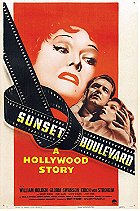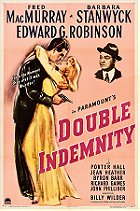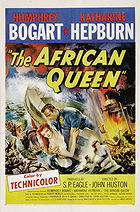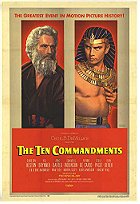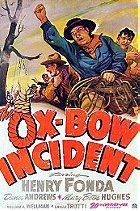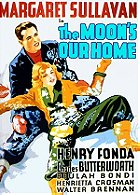Upon viewing with my own eyes Cecil B DeMille’s motion picture production of The Ten Commandments, I can only conclude that is cinematic entertainment worthy of the almighty himself and one of which I can wholeheartedly recommend to my fellow man. For man shall be entertained by the will of great cinema, not be the will of inferior productions, for cinema is cinema.
Ok, I won’t talk like that for the entire review but yes, I love old Hollywood epics. The sheer scope, the bombastic music scores, the rich storytelling, everyone talking like they’re Laurence Olivier with everything they say being an epic monologue of well, biblical proportions. You can’t get films like this made anymore. No studio would be willing to finance such a project nor would moviegoers be willing to watch a film four hours long; they would run for the hills if you even suggest it to them.
From the films I’ve seen or have tried to watch from Cecil B. DeMille (aside from The Greatest Show on Earth which I also enjoyed) his work comes off to me as dull, turgid experiences. The Ten Commandments is an unashamedly old-fashioned, stagey and creaky film even for its time but that was DeMille’s Victorian style. Yet with the Ten Commandments, all these DeMillen elements work; perhaps his entire career was leading up to this one film. The Ten Commandments is one of the most classic of old Hollywood epics tapping in with the public’s fascination with Egyptology. No scene during all fours hours of The Ten Commandments feels unneeded, something interesting is always going on with special effects and sets which get better with age; fake but in a good way. Moses parting the sea is one of the greatest and most awe-inspiring special effects shots in cinema history; I can never take my eyes off the screen when it as it occurs.
Only a handful of scenes in The Ten Commandments were filmed on location with the majority being filmed within the confines of studio sets. Yet it is impressive how DeMille is able to create such a vast world in spite of this, beaming with life and personality; a lavish ancient Egyptian fantasy land that you can lose yourself in and one which feels lived in. The cuts between location and the Hollywood sets are seamless while the widespread use of blue screen, matte paintings and miniatures help create scenes which look like beautiful paintings. Also keeping with DeMille’s Victorian sensibilities, the contemporaneous composer Elmer Bernstein is a surprising choice to compose music for The Ten Commandments but delivers an appropriate, bombastic score complete with horns galore.
Everything Charlton Heston says has so much weight to it; his Moses is a superman of whom you would happily follow in a heartbeat and the humanitarian saving grace to the Hebrews when he is still in line to the throne. Yul Brynner, however, is the actor who steals the show; one of the coolest looking stars of the big screen with his distinctive bald look. With his broad and toned figure, no one could look better or strut wearing that Egyptian headdress and attire. Rames is so evil, suave, chauvinistic and charming; at times you love to hate him, at other times you can’t help to just love him. This is a man who would do just about anything to attain power and even no has no problem telling his potential future wife she’s no better than a dog. Heston and Brynner are opposing forces of masculine badassery with every line of dialogue they utter raising the hairs on my back. - There’s no method acting here, it’s completely old school theatrics.
The Ten Commandments boasts one of the most impressive ensembles casts ever to grace a Hollywood production in which every role feels significant from Edward G Robinson as slimy, cocky, shameless snitch Dathan (no one could pull these traits better than him) to the devilish Vincent Price. The other surprisingly entertaining, campy and sultry performance in the film is Anne Baxter as Nefertiti, of whom I swear has to be a nymphomaniac in the way she swoons and gets excited over the thought of Moses and even getting off on Ramses’ insults, not to mention to odd line of innuendo thrown in there (“The very dirty one there. He may serve my purpose”). Likewise, the film’s constant use of the word bondage will get some laughs for the more immature viewer.
A friend of mine once told me that what prevented him from enjoying The Ten Commandments was that Moses got the easy way out by relying on God’s miracles in order to free his people from slavery in instead of political intervention. In reality, without divine intervention, would Moses’ best option be to keep his identity a secret and free the slaves once he becomes Pharaoh? Then there’s the age-old question, if God is all-powerful, then why does he let bad things happen? Moses asks the film’s fire and brimstone representation of God this when he encounters the burning bush but gets no answer. Regardless, such Deus Ex Machina doesn’t take away from my enjoyment of The Ten Commandments.
I am past the militant atheist phase of my life in which I would have to proclaim my lack of religiosity at any given point and thought I knew better. Regardless of one’s faith or lack thereof, stories such as that of the Book of Exodus helped to create the Judeo-Christian values of which define western civilization, in this, a prime variation of the hero’s journey. Prior to the opening credits of The Ten Commandments, DeMille gives an opening prologue in which he speaks to the audience in person of how the upcoming story is about “the birth of freedom” in which the theme of this picture is “whether men are to be ruled of God’s law, or whether they are to be ruled by the whims of a dictator like Ramses? Are men property of the state or are they free souls under God?” DeMille concludes stating “This same battle continues throughout the world today”. Surely it’s no coincidence that the final line spoken in The Ten Commandments is Moses proclaiming, “Go. Proclaim liberty throughout all the lands, unto all the inhabitants thereof”. This was in 1956 when the communist, centralized state society of the USSR was engaged in a cold war with the USA, a country which inalienable rights are endowed by a Creator which government can’t supersede. – Yet, this battle of Moses vs. Ramses still continues on the world stage into the 21st century.
 Login
Login
 Home
Home 249 Lists
249 Lists 118 Reviews
118 Reviews Collections
Collections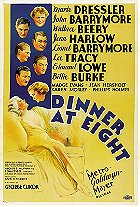
 0 comments,
0 comments, 
